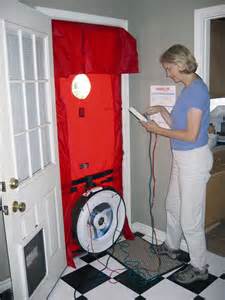Residential Energy Conservation
Want some quick ideas on how to cut your electricity bill? Here is a handout we developed for the 2018 Home Show with some ideas on how you can Take a Bite Out of Your Electric Bill. And for inspiration, see this compilation of some of the Net-zero and Near Net-zero Homes in Jefferson County.
Most people know how much they spend on their home energy bill each month, but they don’t know how that energy is being used. In order to develop a plan for reducing energy use, you must first have a basic idea of where it is being consumed.
One approach to determining how energy is used in your home can be found on the Saving Electricity Web Site. Energy professionals can also do an energy audit of your home. Jefferson County PUD (JPUD) is compiling a list of these professionals.
Once you have an idea of how energy is used your home, you can take action to reduce energy use. There are 2 main strategies:
- No cost or low cost, for example,
a. Properly program your thermostat
b. Weatherize your home
c. Replace incandescent lamps with CFL or LED - Capital investment, for example,
a. Replace that aging propane furnace with an electric heat pump
b. Add insulation
c. Add solar panels to produce your own electricity
The JeffersonCAN website has a number of great resources for calculating your carbon footprint, videos on home audits, and weatherizing your home. And JPUD has a home energy rebate program to incentivize you to invest in some of these energy-saving ideas. Also, see Financing Resources for Energy Projects_revA.
Commercial Energy Conservation
Reducing energy in commercial properties depends on the building use. For example, office buildings are operated differently from schools or hospitals. Professional firms exist that specialize in commercial building audits and recommending capital improvements to reduce energy bills. If you are a business owner, you can start with the Business Resource Guide.
According to Brian Goldstein, former Resource Conservation Manager of Jefferson County, these are the top 5 no-cost/low-cost ideas for saving energy in your building:
- Align heating schedules with occupancy. Turning down the thermostat when the building is not occupied is often the best way to save energy.
- Reduce the amount of fresh air to a building, while maintaining proper ventilation. Fresh air has to be heated, and the more you bring into a building, the more heated air gets exhausted.
- Reduce or turn off air circulation when possible. Fans that are running at full speed or running 24×7 are a constant energy waster.
- Turn off lights in unused areas. Occupancy sensors can help here.
- Remove lighting in overlit areas. Many buildings are designed for the “worst case” scenario and have areas that are overlit.
The JPUD has a commercial rebate program to help incentivize your business to invest in capital improvements. Please contact them for more information.
Resources for Energy Conservation
Abundant resources are available to assist in energy conservation:
- An assortment of videos on home energy audits and residential do-it-yourself energy renovations.
- Comprehensive information on home renovation and new home construction, including tools for assessing home energy use
- Download site for the Energy Savers Guide on lighting, HVAC, duct sealing, etc
- Interesting Home Energy Audit testimonial
- Statistics on residential and commercial building energy consumption
- Residential energy consumption survey
- Online tools for calculating home energy usage
- Residential Energy Consumption Survey (RECS), data from 12,000 households
- Portal with latest energy efficiency stories



